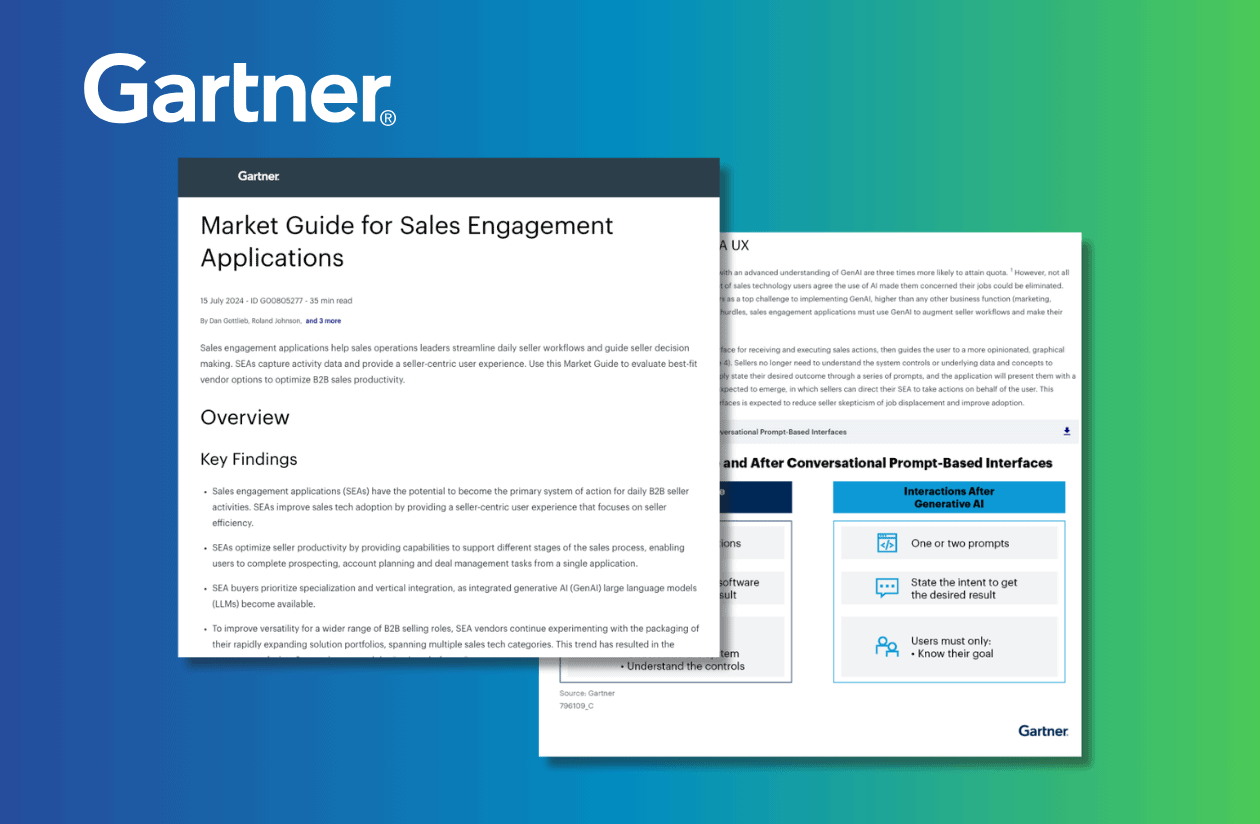Gryphon ONE for Sales
In a competitive sales environment, compliance must be seamlessly integrated into outreach strategies to protect against legal and reputational risks. A robust compliance framework ensures every interaction aligns with regulatory standards while supporting lead generation and conversion.

Gryphon named in the 2024 Gartner® Market Guide for Sales Engagement Applications
Optimize sales productivity and elevate your strategy with Sales Engagement Applications. Download a complimentary copy of the Gartner® Market Guide to learn how Sales Engagement Applications make sellers' lives easier by streamlining workflows and guiding decisions.
Download Report
Benefits
Leverage automated compliance safeguards and real-time monitoring to drive revenue while mitigating risk with conversation intelligence for sales teams.
Sales Use Cases

Balance Compliance and Sales Effectiveness
Ensure compliant outreach while maximizing engagement and conversions.
- Legal Compliance Assurance: Adhere to regulations including call frequency limits, curfews, wireless restrictions, and consumer opt-outs to enhance DNC sales practices.
- Data Integrity & Opportunity Retention: Block non-compliant communications while preserving records, ensuring sales teams can re-engage contacts appropriately.
- Streamlined Sales Processes: Automate compliance to remove barriers, allowing reps to focus on relationship-building and deal-closing with our conversation intelligence solution.

Enhance Sales Coaching and Enablement
Leverage AI-driven sales insights to improve performance and accelerate training.
- Accelerated Onboarding: Reduce training time and enable new sales reps to engage prospects like experienced professionals, shortening time-to-revenue.
- One-Call Close Optimization: Improve first-contact conversions with AI-powered objection handling and competitive counter-strategies.
- Actionable Coaching Insights: Identify improvement areas with AI-driven analytics and scoring, allowing managers to provide targeted coaching without manually reviewing every call.

Empower Real-Time Sales Interactions
Equip sales teams with real-time intelligence to drive conversations forward.
- AI-Powered Conversation Intelligence: Help reps handle objections, counter competitive offers, and personalize interactions dynamically for higher close rates.
- Seamless CRM & Dialer Integration: Work within existing workflows by integrating Gryphon ONE with current CRM and dialer solutions for faster ROI.
- Technology Enhancement, Not Replacement: Augment existing systems rather than compete with them, ensuring faster adoption and efficient workflows.